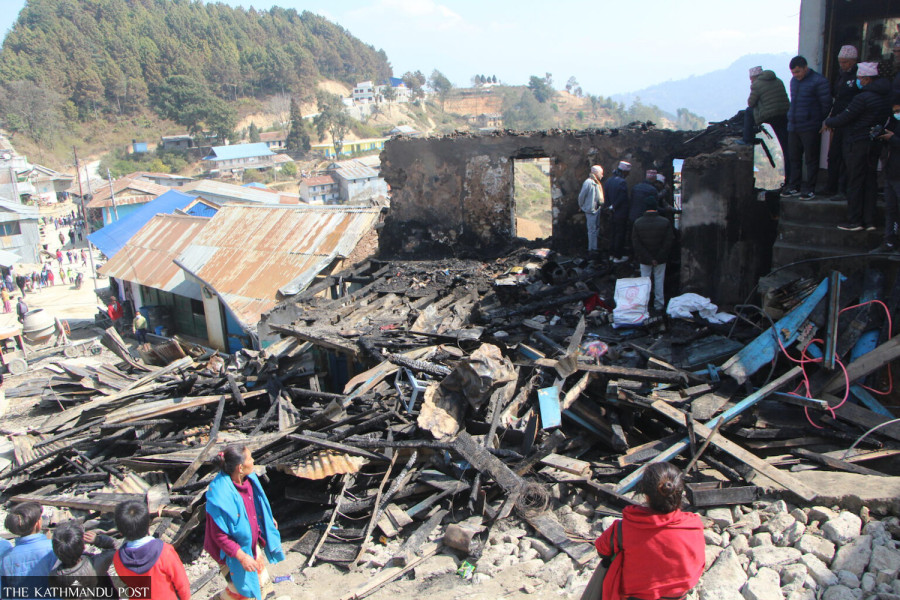Editorial
Season of fire
We must work sincerely towards ensuring that fire incidents come down in the days to come.
Spring is here, and with it, the fear of incidents of wildfires throughout the country returns again. As the Post reported on Thursday, various places in Taplejung and Panchthar have already reported several fire incidents in human settlements and community forests. In the past seven days alone, the Home Ministry recorded 61 fire incidents. As the Post reported last year, between April 8, 2020 and April 7, 2021, the Home Ministry recorded a total of 2,765 fires across the country. A total of 99 people died and 342 were injured in those incidents. As fire ravaged forests and human settlements, the government and the people had to wait desperately for rain as there were too little resources available for too many incidents occurring simultaneously.
And yet, governments across all three tiers have yet to show what they have done in the past one year to ensure prevention and control of fire incidents. Even today, a vast majority of local units lack fire brigades, which means that there is little chance of sending proper help during fire incidents. What is more, there are no proper roads outside cities and major towns, which severely limits access to fire brigades. It is, therefore, not only a problem of the fire department alone; it is a general lack of common sense in infrastructure development that plagues the country. A general lack of sensitivity among the public about the need to take extreme precautions to prevent fire incidents is not helping either.
A majority of the time, fire incidents happen due to immediate human actions, such as negligent use of fire. Now that we have caused some irreversible damage to the earth, scientists say, climate change-induced fire incidents are only going to rise in the near future. As the government fails to provide enough fertiliser in time, farmers across the country resort to the traditional practice of stubble burning, which often gets out of hand and results in widespread fire incidents. Those traditions do not go away easily unless there is a large-scale concerted effort to educate the farmers about the hazards such practices pose to humans, livestock and property. The authorities also need to support them by providing them with easier alternatives. The only way we can reduce fire incidents, then, is to work more actively than ever before.
But what we need is an integrated approach rather than ad-hoc solutions. There is a need to build sturdy mechanisms in advance so that we will not remain mute spectators during times of crises. This calls for greater coordination between the administration and the communities in training and resource management vis-à-vis fire incidents. Without a conscious effort towards preventing and controlling fire incidents, we might yet again be condemned to watch helplessly and wait desperately for rain as wildfires spread in jungles and human settlements. We cannot continue to face significant losses of life, property and livestock each year. Instead, we must work sincerely towards ensuring that fire incidents come down in the days to come.




 23.12°C Kathmandu
23.12°C Kathmandu














